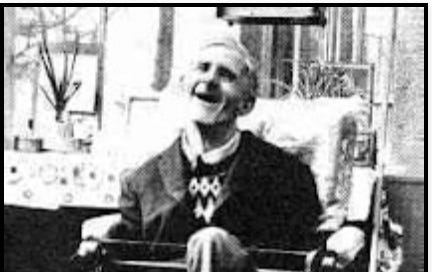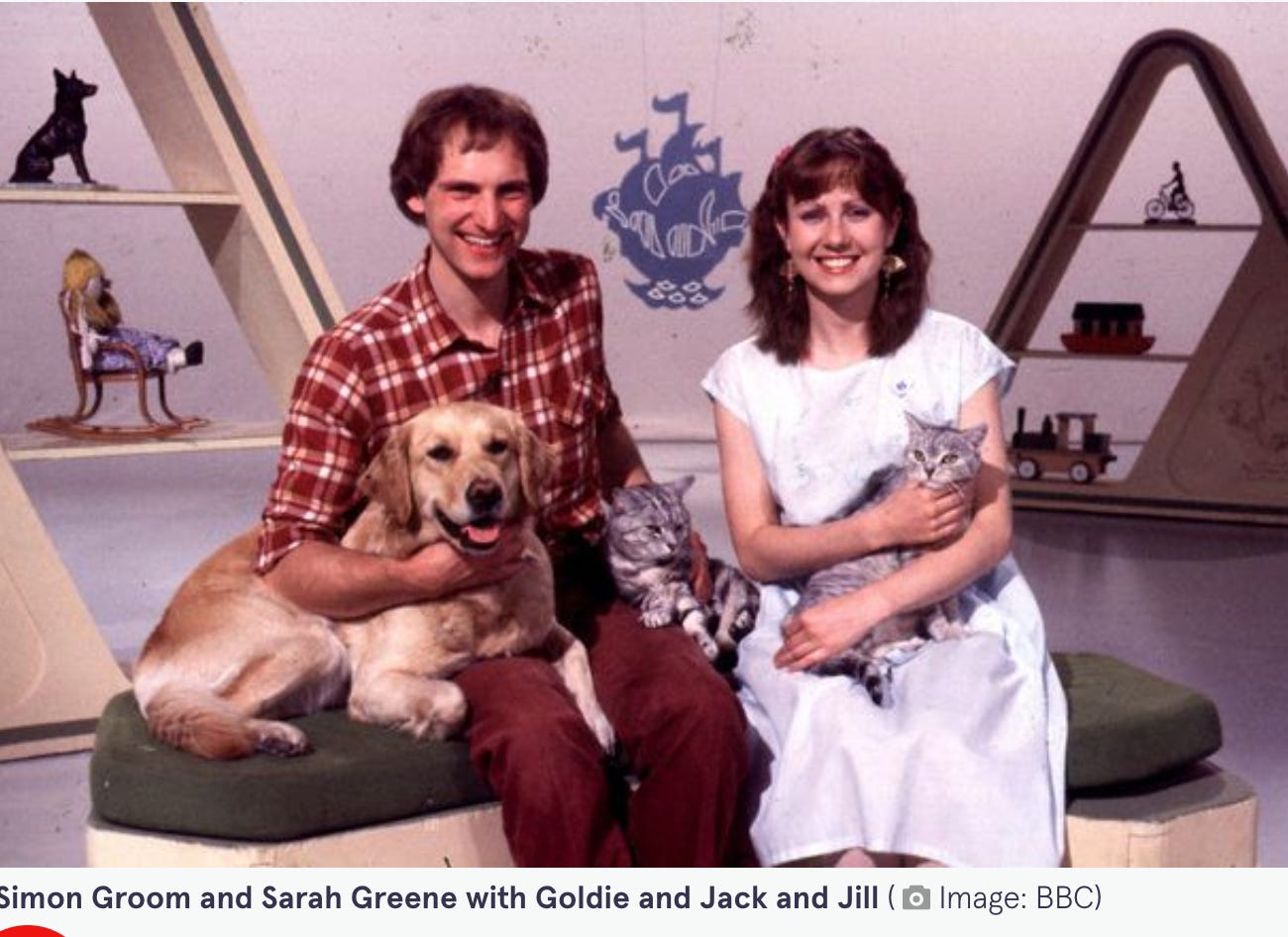SPASTICITY: an abnormal increase in muscle tone or stiffness of muscle, which might interfere with movement, speech, or be associated with discomfort or pain. Spasticity is usually caused by damage to nerve pathways within the brain or spinal cord that control muscle movement. It may occur in association with spinal cord injury, multiple sclerosis, cerebral palsy, stroke, brain or head trauma… Symptoms may include hypertonicity (increased muscle tone), clonus (a series of rapid muscle contractions), exaggerated deep tendon reflexes, muscle spasms, scissoring (involuntary crossing of the legs), and fixed joints (contractures). The degree of spasticity varies from mild muscle stiffness to severe, painful, and uncontrollable muscle spasms. Spasticity…often interferes with daily activities. National Institute of Neurological Disorders and Stroke
BLUE PETER
British tv in the 1970s had three channels, BBC 1, BBC 2 and ITV. Like most born in the 70s my childhood was spent playing outside with the kids on my street, and when I did watch tv there was very little choice. This meant that what was on was almost certainly seen by a lot of your friends. So, when Blue Peter, one of the nation’s favorite children’s television programs, introduced Joey Deacon, it didn’t take long for him to become a schoolhouse name.
Blue Peter first aired in 1958 and is still going. It’s a magazine format with current event features and pop culture segments, and it honors kids who make a difference in their community with a coveted Blue Peter badge in the shape of the Blue Peter ship logo. There’s a Blue Peter dog, currently Henry, a beagle/basset hound cross, who’s somewhat of a national mascot. The greatest day of my elementary school life was when Goldie, the Blue Peter dog at the time, came to visit. A product of the British Broadcasting Corporation whose mission is to Inform, Educate and Entertain, Blue Peter does just that.
In 1981, Britain’s Year of the Disabled, Joey Deacon, a non-verbal disabled man with cerebral palsy was brought on Blue Peter. Their aim was to educate and inform viewers about cerebral palsy and disability, and to raise money for the Spastic Society. He was 50 and died that same year.
Sadly, it didn’t take children long to turn his name into an insult and mock his disabilities. Yells of “Joey”, “Spaz”, “You’re a Joey Deacon” were thrown around the playground, and wild hand movements, limp wrists, knocking knees, and tongues pushing out the skin beneath the bottom lip were acted out. Joey Deacon was a phenomenon, but one that wasn’t received as Blue Peter had intended.
LIZZO
In June of this year, Lizzo, a singer and rapper came under fire for releasing a song, ‘Grrrrls’ that contained the word “spaz”. In some cultures “spaz” does not have an overtly negative connotation and means going crazy and wild. But language has its roots somewhere, and the crazy and wild implications are bound in the contorted shapes a body with spasticity can form. Lizzo owned that the word is offensive and changed the lyrics. She published a tweet;
According to Johns Hopkins University, spasticity affects 12 million people worldwide including 80% of people with MS and 80% of people with cerebral palsy. By the time I had surgery last August my spasticity was so crippling I could barely move. I was in chronic pain, and a real life version of Tin Man. It had crept up on me slowly over the previous five years. My surgery was to have a medical pump implanted that drips medicine into my spine to help relieve it. The spasticity still there, but now it’s manageable.
I’ve thought about Joey Deacon often since I began suffering from spasticity. Blue Peter taught this 8-year-old kid what spasticity looked like, but missed informing its viewers what it felt like to live with it. Perhaps if we’d understood the pain Joey was in, and the challenges he faced all day and night, every day and night, kids would’ve been kinder. I don’t know.
Before I was in a wheelchair, when I was walking slowly and stiffly I wondered if people laughed at me, like we made fun of him. I like to think we’ve moved on from that, but there’s still a ways to go by changing our language. I’m thankful that people like Lizzo are acknowledging “spaz” is indeed a word we can live without.


















Share this post